Jessica Corde has lived every mother’s nightmare. Her 18-year-old son, Marquis LeBlanc, was brutally murdered in 2009 – beaten, stabbed in the heart, shot in the head, and stripped naked, his lifeless body left in the street, targeted simply because he was black and unknowingly showed up at the wrong party in suburban Los Angeles. Eventually, 10 men, members of the Tinto Killers gang, were convicted in Marquis’ murder in 2010.
At a Parole Suitability Hearing in February 2021, the ringleader, Martin Haro, allegedly told Parole Board Deputy Commissioners that he started a race riot while in prison during which he brutally beat a black inmate and that while beating that inmate Marquis LeBlanc was on his mind. Haro admitted to being involved with gangs while he was in prison. And, a report filed by a psychologist determined that Haro was at moderate risk of future violence. Inexplicably, Haro was still recommended for parole – a heartbreaking continuation of Corde’s nightmare.
When I received the transcript of the hearing – after being stonewalled for four months and being forced to get my state representative involved – I discovered that 50 minutes of the transcript was missing. Guess which 50 minutes that was? That’s right, the bulk of Martin Haro’s testimony, the part in which the prison riot was discussed. Very convenient.
Fortunately, and likely due to Jessica Corde’s very public and heartwrenching media appearances detailing the despicable way in which Haro’s Parole Suitability Hearing was handled, Gov. Gavin Newsom reversed the parole board’s recommendation and Haro remains behind bars – for now. He’s again up for parole by August 2022, according to an email I received from the Board of Parole Hearings (BPH).
As much as BPH would like that to be the end of the story, it’s not. How did this happen? How can nearly an hour of crucial testimony just disappear and nobody cares? Why did this Deputy Commissioner feel so free to cruelly disregard a victim’s family? What would have happened had Corde not made such a fuss in the media?
One factor contributing to the way the hearing was conducted and the outcome was that there was no one from the LA County District Attorney’s office representing the victim since newly-elected DA George Gascon issued a directive prohibiting Deputy DA’s from attending parole hearings or even from opposing parole even when an inmate is determined to be a moderate risk for future violence, like Haro.
Because of that directive, Corde and her family were the only ones there arguing against parole. Since she isn’t a Deputy District Attorney she was not allowed to question Haro. She was only permitted to give a victim statement. In a radio interview with Larry O’Connor, Corde relayed some of what Haro told the Deputy Commissioners:
In the parole hearing [Haro] said the only thing that [Marquis] did that night was show up black. “We hated black people. We didn’t see them as humans. We felt disrespected that a nigger would show up at our party.”
They chased my son 100 yards. He caught him, he said, “I beat him and I stomped him and I beat him until my homeboys did the rest.”
In front of my family…he said, “I only killed him because he was black.” He said, “I did it again while I was in prison. I started a race riot, but I got away with it. And when I was stomping that boy, I was thinking about Marquis LeBlanc.” He said all of this in the parole hearing, and they still granted him parole.
Corde was stunned and enraged that one of the Deputy Commissioners, Deborah San Juan, didn’t seem to care about the brutality of her son’s murder or what Haro admitted to doing while incarcerated, evidently more concerned with Haro’s feelings:
And then at the parole hearing, she said, “Well, you can quit talking, because I’m not here to judge him on his crime. I’m only here to judge him on the things he did in prison.”
And then we sit there and poured out our heart to her, and then she turned around in front of us, Deborah San Juan, in front of my family, and said to him, “Congratulations, you made parole.”
And then he starts to crying, then she says, “Oh, are you crying? Don’t cry. We’re not gonna hold your past against you,” in front of my family.
Now-retired LAPD Detective Moses Castillo heard about the parole hearing at the last minute and attended with the family as a Marsy’s Law advocate. His account corroborates Corde’s.
Haro admitted 2 the BOP that in 2014, at age 20 he beat another black inmate, “when I was beating him, I was thinking of Marquis” the board did not give it much consideration because it was documented in his file. They were surprised to hear it happened. https://t.co/if2GPzmVLx
— Detective Moses Castillo dlawgroup.com (@DetectiveMoses) February 11, 2021
When I heard Corde’s interview with Larry O’Connor, I decided to request the hearing transcript so I could directly quote what each participant said when I eventually covered the story. On March 11, 2021, I completed an online request for the transcript and received an auto-reply that in general, transcripts were available 30 days after the hearing (which it was), and take 10 days to process.
The next day I received an update letting me know that “this inmate’s transcripts require additional review” and to allow 10 to 14 business days, but that it might take longer due to COVID-19 and employees working remotely. Fully expected.
Well, after a month, I still hadn’t heard anything, so I followed up on April 15.
The reply:
Thank you for your inquiry. Unfortunately, due to covid restrictions and teleworking, your request is still in process. This office received a high number of requests on a daily basis, so it is not unusual to not have it answered at this point.”
I was frustrated, but decided to wait another month. On May 11 I emailed again just inquiring as to the status. There was no reply this time, so I contacted my Assemblywoman, Suzette Valladares, to ask for help. Thanks to assistance from Valladares’ office I finally received the transcript on July 16.
The email stated:
Per your request, attached is the transcript of inmate Haro’s parole hearing. Please note that Governor Newsom reversed inmate Haro’s proposed grant of parole on 5/21/21.
Inmate Haro remains in prison.
So, why did this take so long? Did they wait until they knew what Newsom was going to do before releasing the transcript? Did it have anything to do with the recall petition, which was still being circulated when I first requested the transcript? I decided to push those thoughts aside and dig into the transcript, since whether Newsom reversed or accepted the proposed grant of parole was irrelevant to what I was looking for in the transcript.
As I read through the transcript I was surprised that I couldn’t find anything like what Jessica Corde referenced. I found lots of other mistakes (grammar, “inaudibles,” etc), but couldn’t find that Haro said much of anything. So I looked closer. I found that near the beginning of the transcript the hearing was adjourned for a brief recess, and then when the hearing resumed the first sentence in the transcript was an answer Haro was giving to a question. But the question wasn’t there.
Five pages later another recess was announced, and using the times read into the record I was able to determine that there was approximately 50 minutes of hearing time that hadn’t been transcribed. And, there was no notation in the transcript that there was anything missing – it was as if someone (whether the transcription company or the Board of Parole Hearings) wanted readers to think it was a complete transcript.
Since I worked as an official court reporter for the State of North Carolina before going into journalism and prepared similar types of transcripts, I know what they’re supposed to look like and what a good quality transcript is comprised of – even if they’re done from recordings made without a court reporter present, such as this Parole Suitability Hearing. It is wholly unacceptable for a transcript of a hearing to not have some kind of notation that the transcript is incomplete.
In addition, there were 89 “inaudibles” in the 93-page transcript (that’s including indexes and certificate page), meaning there was a section of audio the transcriptionist couldn’t decipher, and numerous verbiage errors. Here are a few samples.
They shot him “point blank,” maybe?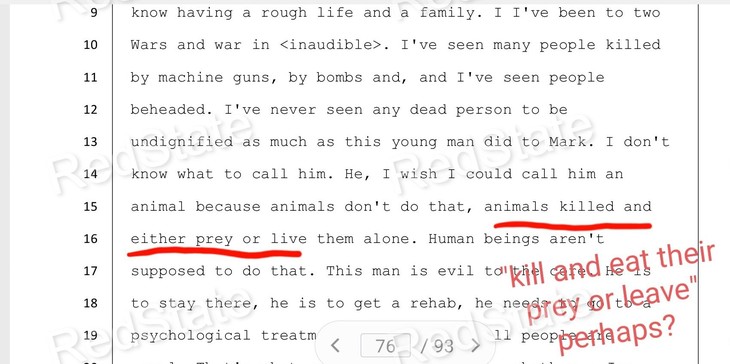
Anyone reading that knows it doesn’t make sense.
“Mexican pincher killers.” Sounds like a tough gang.
I sent a letter describing these inadequacies to Asm. Valladares’ office and asked them to follow up with CDCR, and that I would like a copy of the audio recording to compare to the transcript. Here is the reply received August 27, 2021 through Asm. Valladares’ office:
It says:
Our Board of Parole Hearings conducted an audit of the hearing recording and transcript and will be providing Jennifer Van Laar with a corrected transcript, which clarifies minor errors in transcription. Due to audio recording issues, however, a portion of the hearing was not captured on the tape and, therefore, could not be transcribed. While this is unfortunate, the Board was able to review the parole grant with the hearing panel’s decision, which was recorded and transcribed, and also by reviewing the documents that were available to the hearing panel. Under the Board’s regulations all relevant, reliable information available to the panel shall be considered in determining suitability for parole.
The Board also notes that on May 21, 20201, the Governor reversed Martin Haro’s grant of parole. Therefore, Martin Haro will receive another parole consideration hearing on or before August 10, 2022.
While this is unfortunate? Obviously since Gov. Newsom reversed the grant of parole he didn’t agree with the findings made by the two Deputy Commissioners, and without hearing Haro’s testimony we can’t know what the Deputy Commissioners were relying on. If I were Haro’s counsel I would be screaming loudly about this. But, it’s possible that Newsom had the advantage of hearing this audio. Why would he not mention that he couldn’t hear all of Haro’s testimony and therefore didn’t have enough of a basis to reject or accept the grant of parole and order another hearing? Of course, no one wants Corde to have to go through that again. But the sequence of events and the actions of those involved don’t line up.
And does anybody – whether in the legislature, the Board of Parole Hearings, the California Departmtent of Corrections and Rehabilitation, the defense bar, prosecutors, or victim’s advocates, care that a contractor is doing such a piss-poor job of guarding the record?
This… this is Gavin Newsom’s California. Everyone shrugs their shoulders and shuffles along.
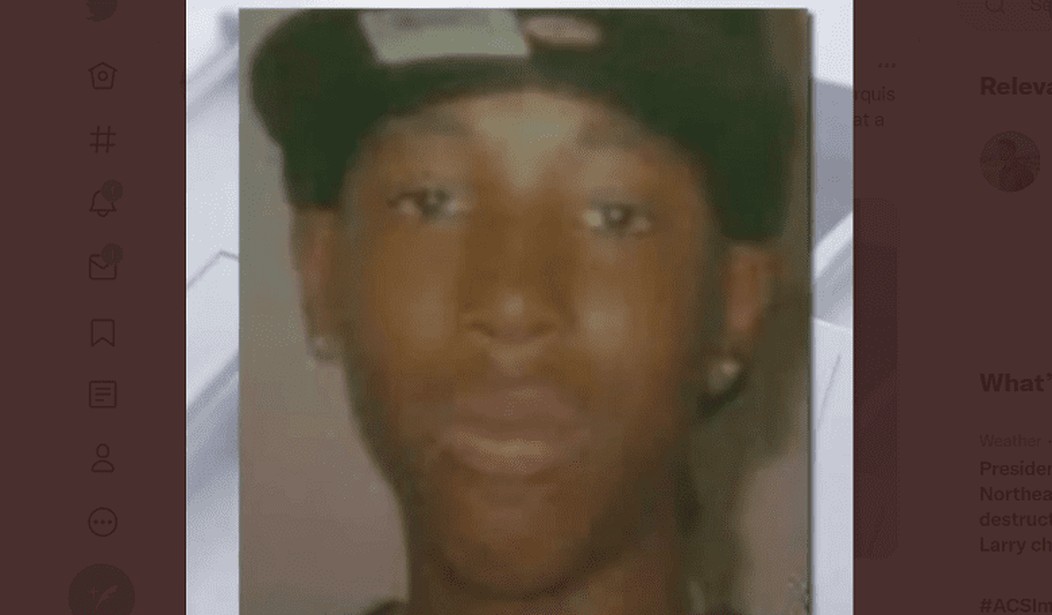
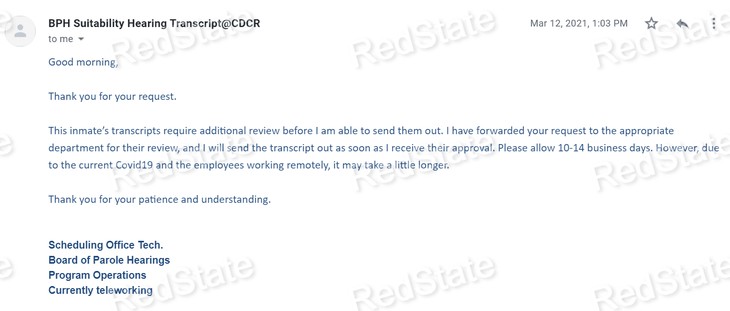
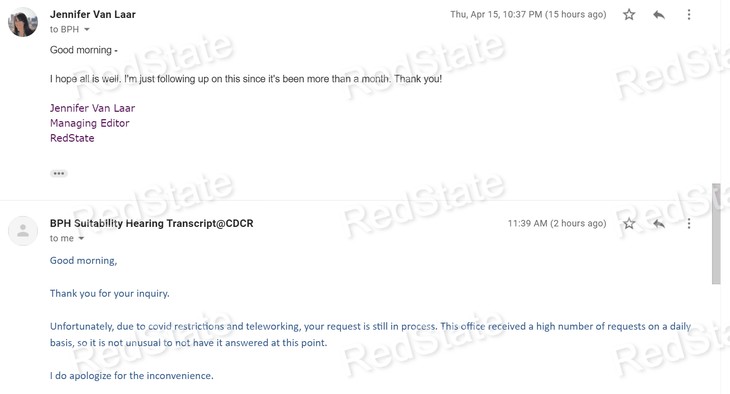
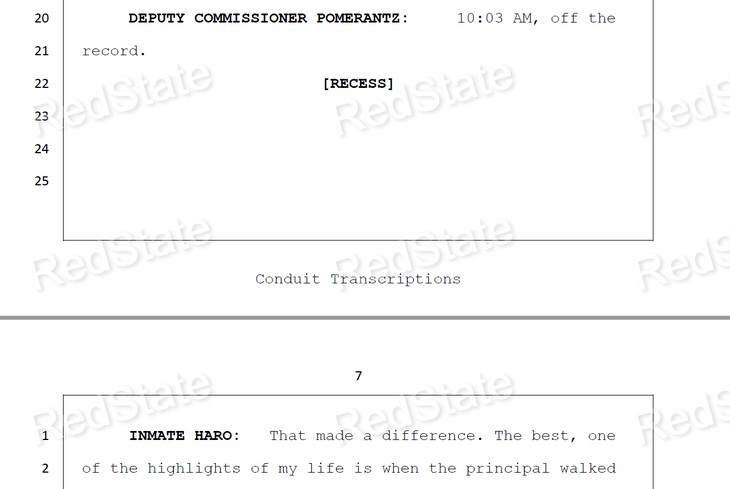
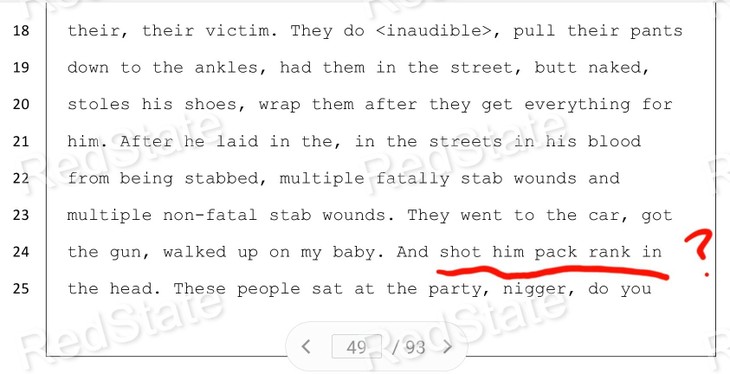
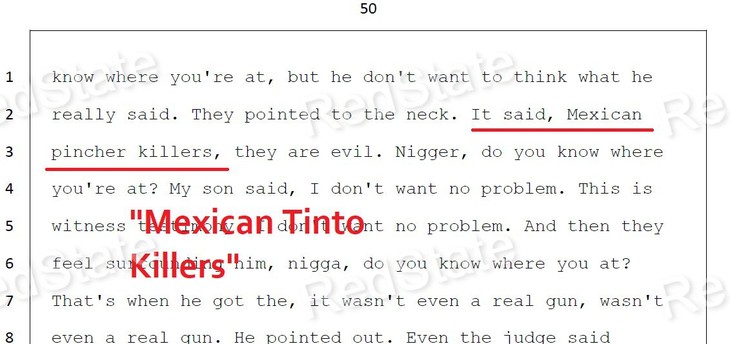













Join the conversation as a VIP Member